Best Gravity Water Filters of 2024 Reviewed
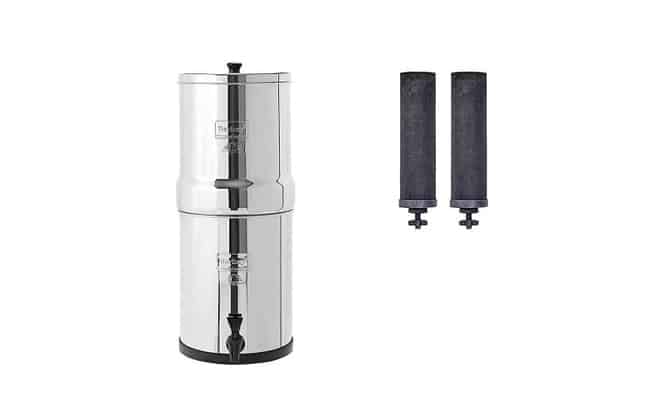
Travel Berkey Gravity Water Filter
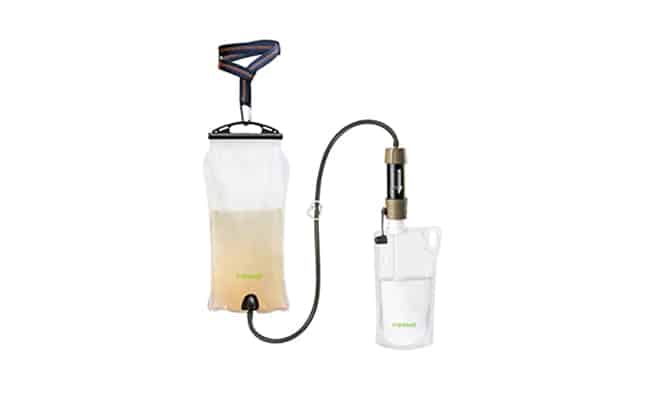
Miniwell Gravity Water Filter
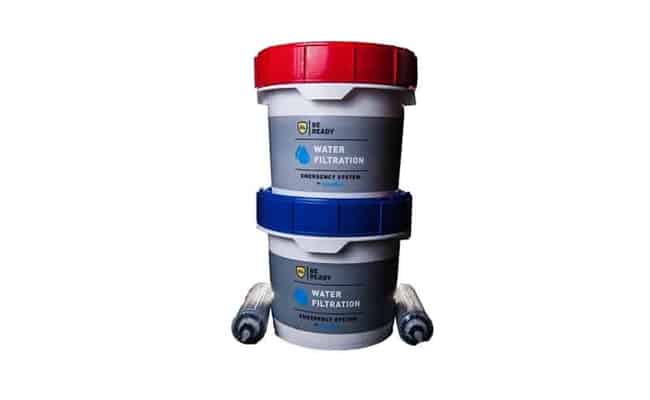
Aquapail Gravity Water Filter
A gravity water filter is an amazing piece of technological ingenuity. It allows you to filter contaminated or polluted water using gravity. It doesn’t need electricity or plumbing to run. Simply pour in your unpurified water in the top chamber of the unit, and it transforms it into clean, filtered water by the time it exits the second chamber below.
Now, you’re likely thinking – Where on earth would I use a gravity filter? For starters, if you’re going to be off-grid for a while, you’re certainly going to need an efficient water filtration system that doesn’t rely on electricity. If you plan to go cruising on the open waters in your boat, you’ll want to have pure, fresh water to drink.
With so many options for purifiers on the market right now, how do you pick the best one? In our quest to find the best gravity water filter, we’ve tried, tested, and ranked the top 12 brands. We’ve also put together a comprehensive guide to help you choose the right one for your needs.
Travel Berkey Gravity Water Filter
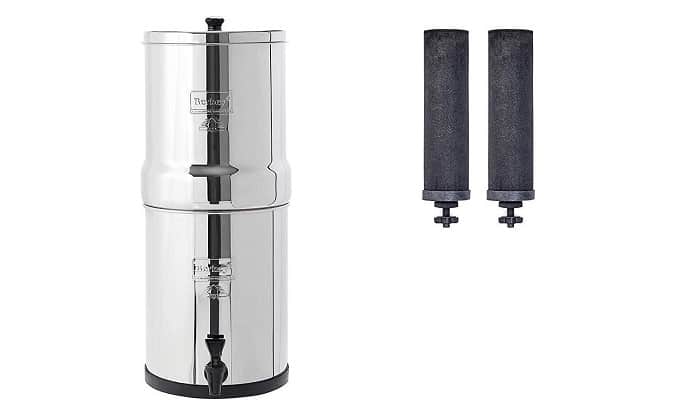
Berkey is a household name in the water filtration realm. Top on our list is their range of portable travel purification systems. This 1.5-gallon capacity water filter doesn’t just purify water by getting rid of 99.999% of viruses, pathogenic bacteria, and protozoa, but it also minimizes the concentration of heavy metals, inorganic minerals, and any pharmaceutical drugs that may be present.
Pros
- The elements have a 6,000-gallon lifespan
- Beautiful sleek appearance
- Produces outstanding filtering results
Cons
- Relatively slow filtration rate
Berkey Light Gravity Water Filter
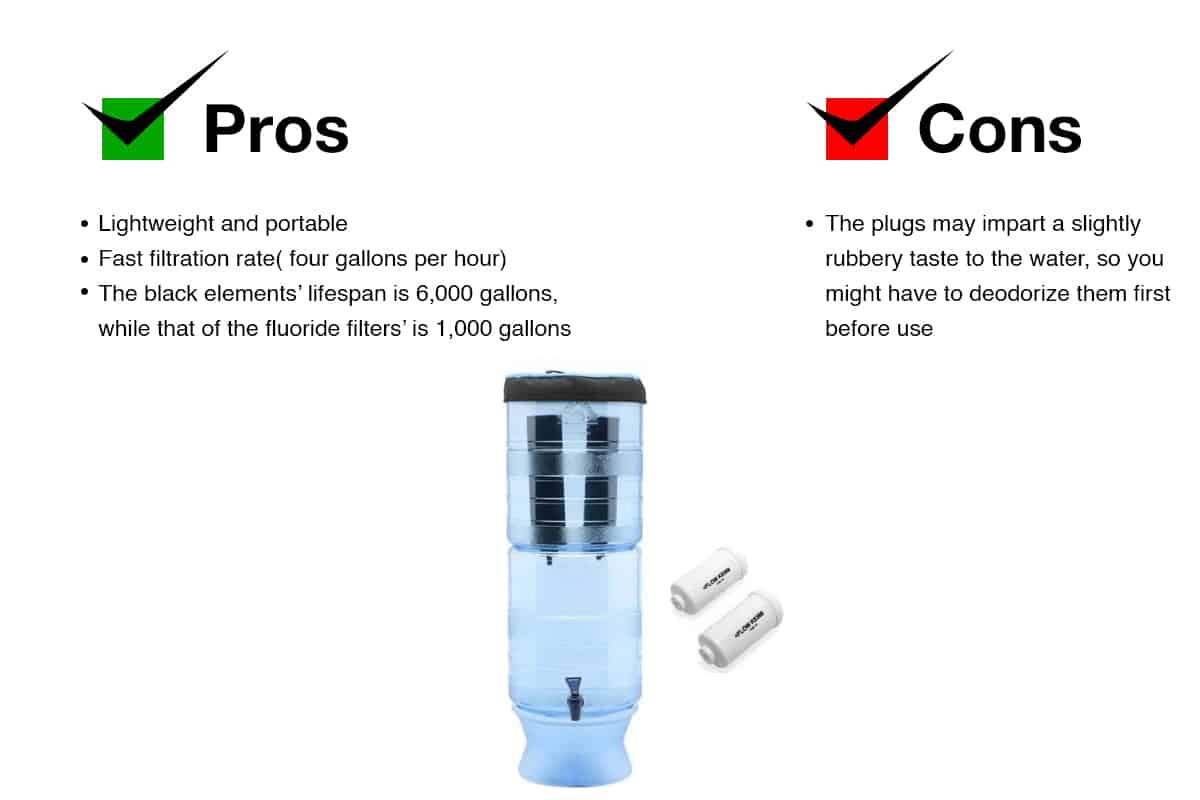
This particular filtration system is no doubt one of the most powerful ones we’ve come across. Its water purification system relies on two black elements and two fluoride filters to get your water clean. One of the most outstanding things about this unit is just how lightweight it is. The fact that it is also transparent is a nice touch since it makes it easier to determine the exact amount of water present in the upper chamber.
Pros
- Lightweight and portable
- Fast filtration rate( four gallons per hour)
- The black elements’ lifespan is 6,000 gallons, while that of the fluoride filters’ is 1,000 gallons
Cons
- The plugs may impart a slightly rubbery taste to the water, so you might have to deodorize them first before use
Big Berkey Gravity Water Filter
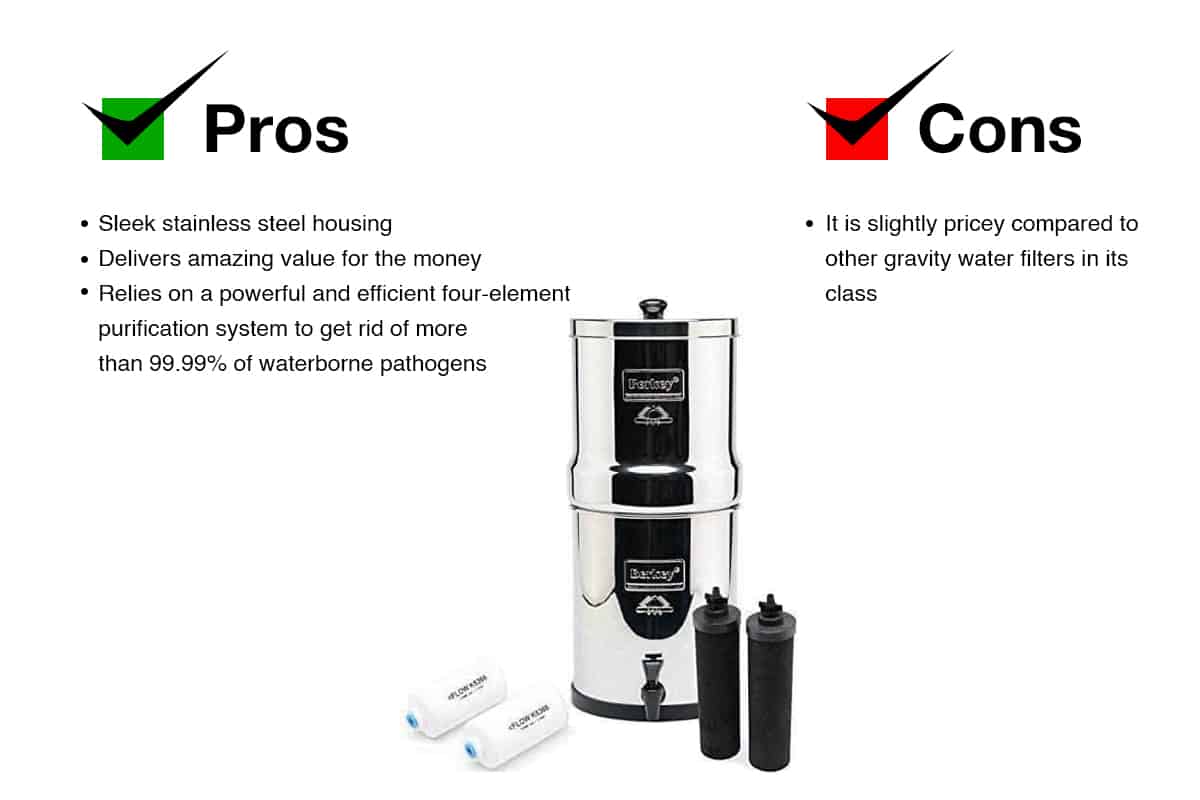
If you’re looking for a sleek countertop unit for your cabin cruiser, the Big Berkey BK4X2 stainless steel gravity filter is a great option to consider. This unit has a 2.25-gallon capacity and is ideal for four to 16 people. It uses two black and two fluoride elements to filter up to seven gallons of water every hour. This is something we were quite pleased with.
Pros
- Sleek stainless steel housing
- Delivers amazing value for the money
- Relies on a powerful and efficient four-element purification system to get rid of more than 99.99% of waterborne pathogens
Cons
- It is slightly pricey compared to other gravity water filters in its class
Joypur High Capacity Gravity Water Filter
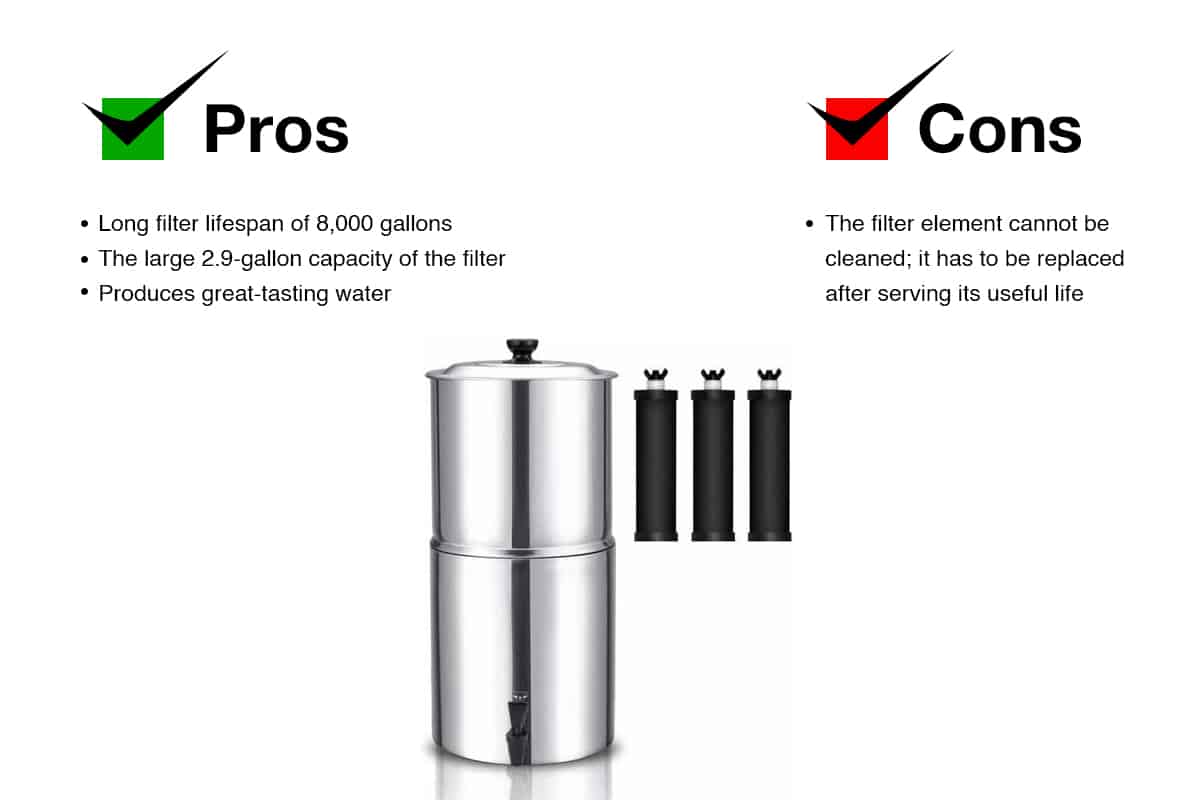
The Joypur water purification system uses next-generation technology to filter 99.9999% of viruses, pathogenic bacteria, mercury, chloramines, chromium, and lead. It comes with a five-stage nanocomposite filter with cartridge pores that measure a measly 0.01 microns. This means that it is capable of removing contaminants that other filters would generally miss.
Pros
- Long filter lifespan of 8,000 gallons
- The large 2.9-gallon capacity of the filter
- Produces great-tasting water
Cons
- The filter element cannot be cleaned; it has to be replaced after serving its useful life
Santevia Gravity Water Filter
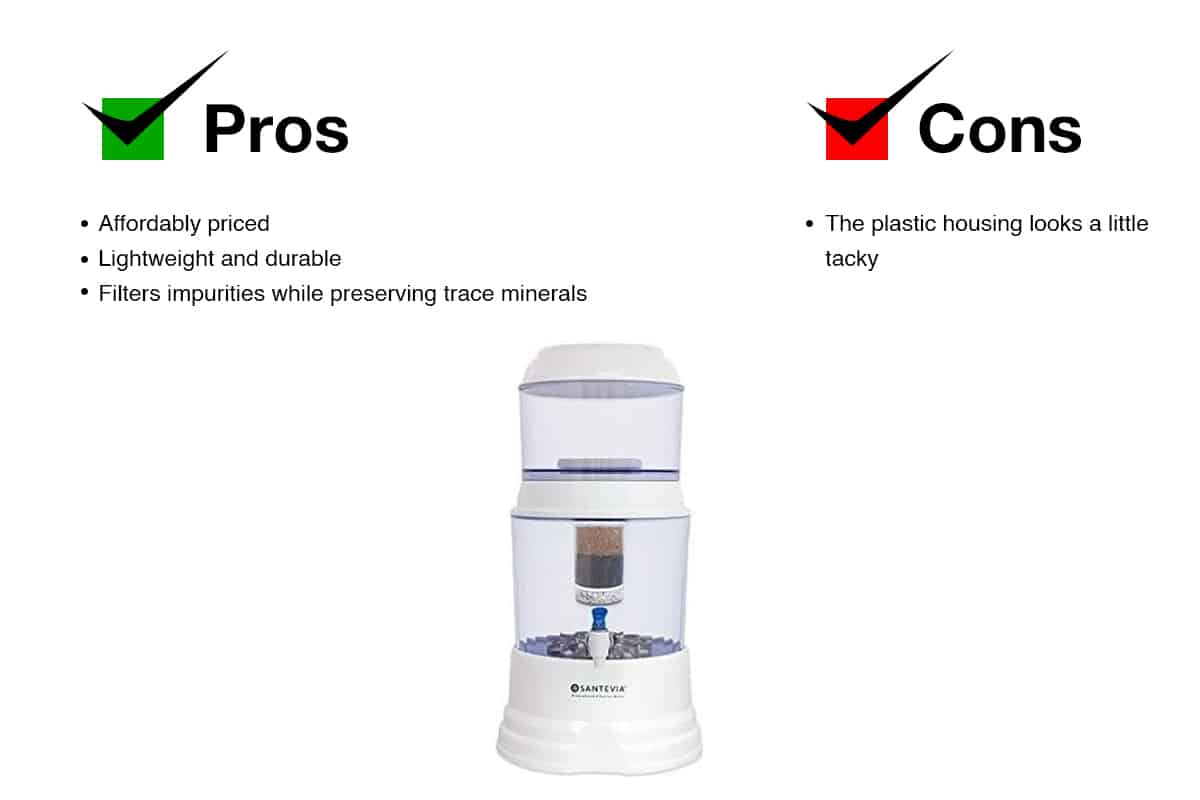
Santevia is a popular brand in the water filtration world and is well-known for delivering durable, high-quality products. Their range of countertop gravity purifiers filters chemical and mineral contaminants to give you great-tasting, alkalized water with just the right amount of trace elements. Its price point isn’t too bad either.
Pros
- Affordably priced
- Lightweight and durable
- Filters impurities while preserving trace minerals
Cons
- The plastic housing looks a little tacky
Zen Water Systems Countertop Filter
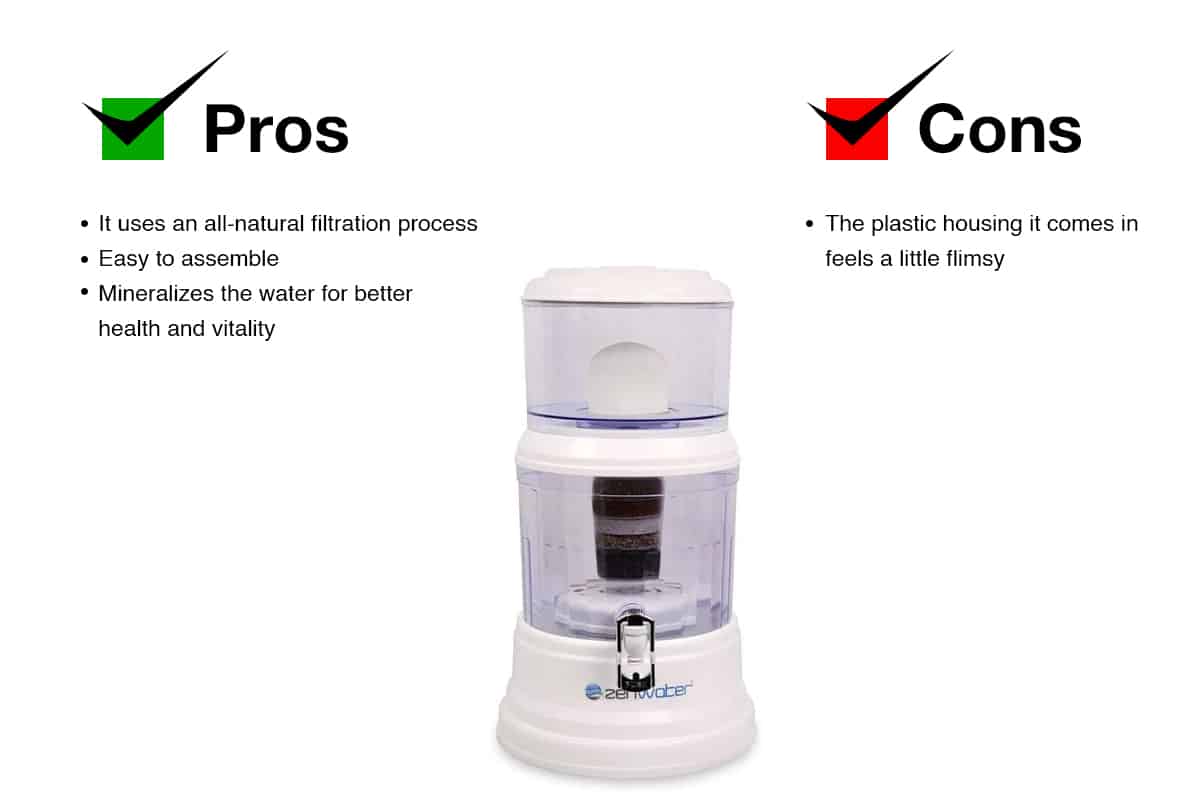
The Zen four-gallon purifier uses a unique five-step filtration method to give you crystal-clear, great-tasting water. We must say, we were quite impressed with it. It filters, purifies, mineralizes, alkalizes, and magnetizes contaminated water, eliminating more than 99.99% of waterborne impurities and pathogens. It also infuses trace minerals that boost your overall health and wellbeing.
Pros
- It uses an all-natural filtration process
- Easy to assemble
- Mineralizes the water for better health and vitality
Cons
- The plastic housing it comes in feels a little flimsy
Miniwell Gravity Water Filter
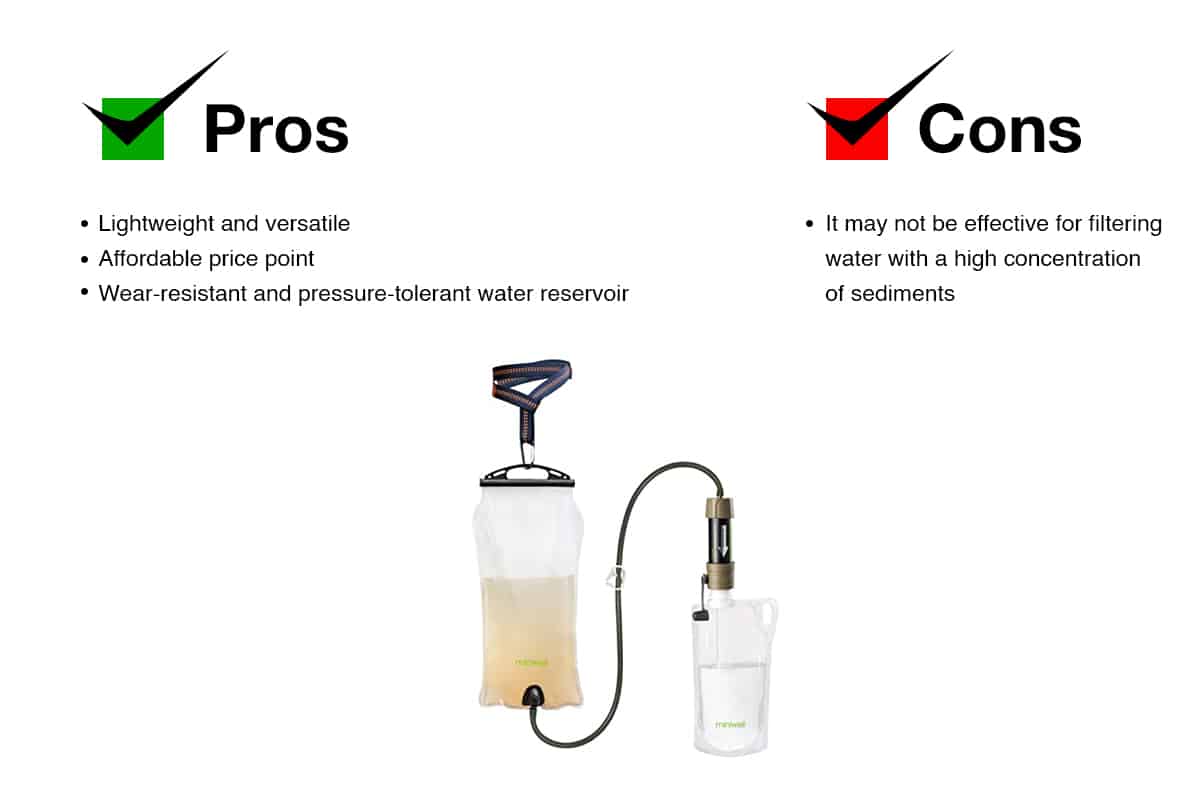
The Miniwell gravity water filter is one of the most versatile purification systems around. It is ideal for use on camping trips or fishing expeditions that take you offshore for several days at a time. It filters around 500 gallons of water and is made of premium-quality, food-grade material.
We especially like that the filter’s lifespan can be extended by inverting the collapsible bottle to back-flush it and get rid of trapped impurities. For its price, this filter delivers outstanding value for the money.
Pros
- Lightweight and versatile
- Affordable price point
- Wear-resistant and pressure-tolerant water reservoir
Cons
- It may not be effective for filtering water with a high concentration of sediments
LifeStraw Flex Gravity Water Filter
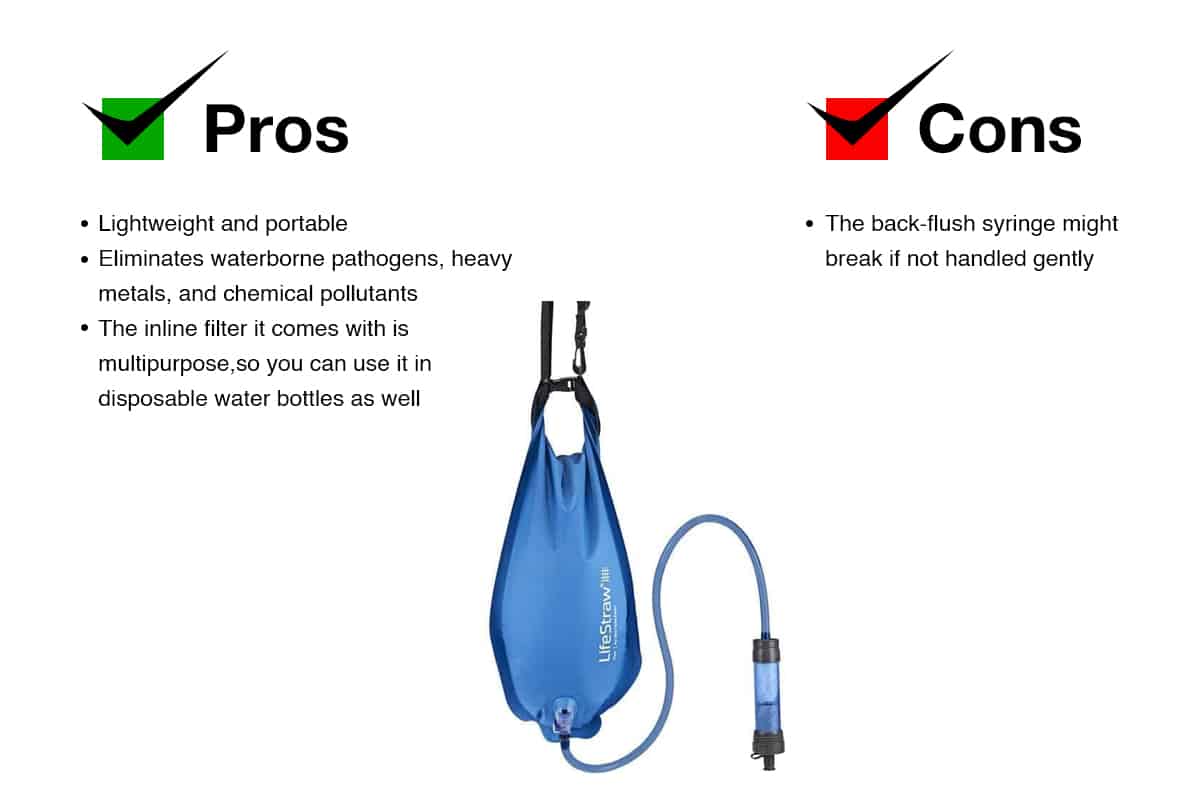
Last, but certainly not least, is the LifeStraw Flex gravity water purification system. It relies on a hollow fiber membrane to filter out 99.999% of protozoa, microplastics, viruses, and bacterial pathogens.
We especially like that it reduces the concentration of lead and other heavy metals, as well as that of herbicides, pesticides, and other organic chemical matter. The fact that it is lightweight and portable makes it perfect for your next boating expedition.
Pros
- Lightweight and portable
- Eliminates waterborne pathogens, heavy metals, and chemical pollutants
- The inline filter it comes with is multipurpose, so you can use it in disposable water bottles as well
Cons
- The back-flush syringe might break if not handled gently
Aquapail Gravity Water Filter

If you’re looking for a unit that delivers rugged performance in the great outdoors, you will like what the Aquapail gravity filter brings to the table. This 1,100-gallon filtration system is one of the very few on the market that not only purifies water by eliminating more than 99.9% of waterborne pathogens but also takes out 100% of glyphosate. This is a feature that’s hard to come by.
Pros
- Lightweight and portable
- It filters out pathogens and glyphosate
- Durable and sturdy
Cons
- It is made of plastic
Ginkin Gravity Water Filter
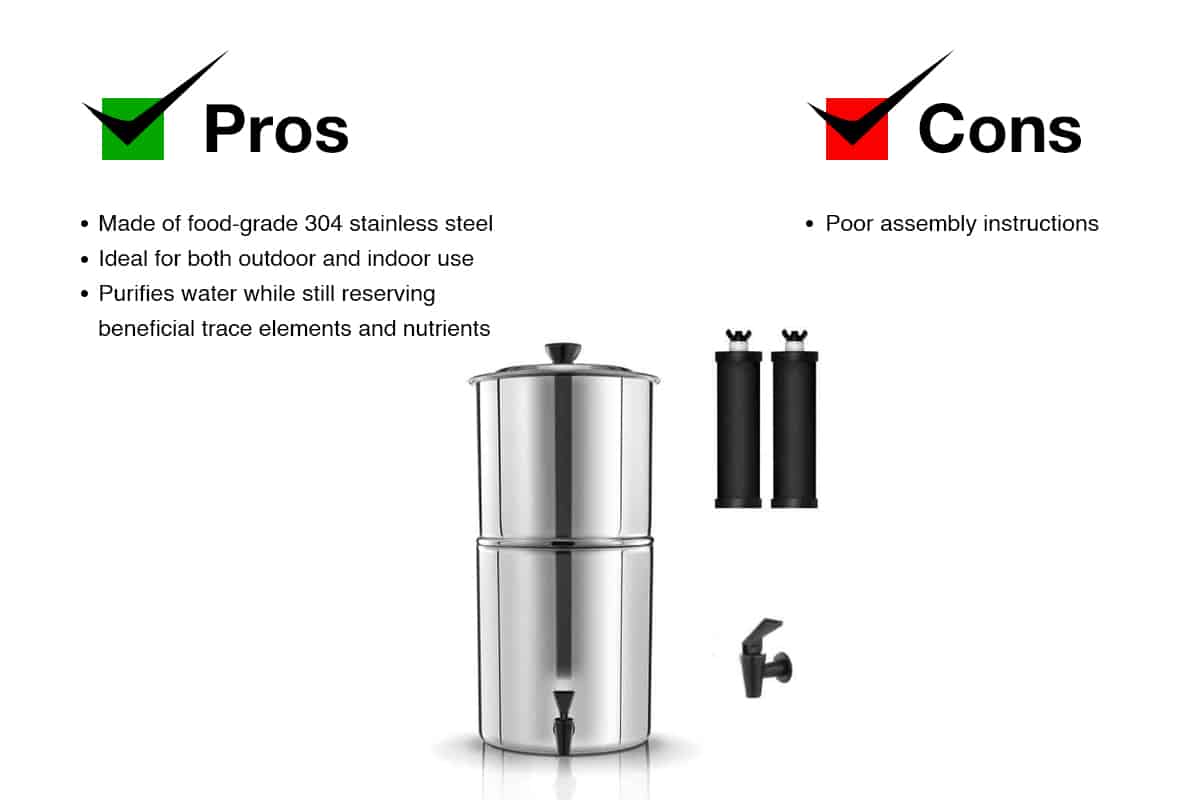
As far as high-capacity gravity water filters go, it doesn’t get any better than the Ginkin filtration system. This particular unit can hold 2.9 gallons of water, which is ideal for up to 20 people at any given time.
It comes with a two-piece high-efficiency water composite filter, which effectively removes more than 99.9999% of sediments, particulates, cysts, and disease-causing pathogens. It is by far one of the most powerful systems we’ve encountered.
Pros
- Made of food-grade 304 stainless steel
- Ideal for both outdoor and indoor use
- Purifies water while still reserving beneficial trace elements and nutrients
Cons
- Poor assembly instructions
Nikken Water Gravity Filter
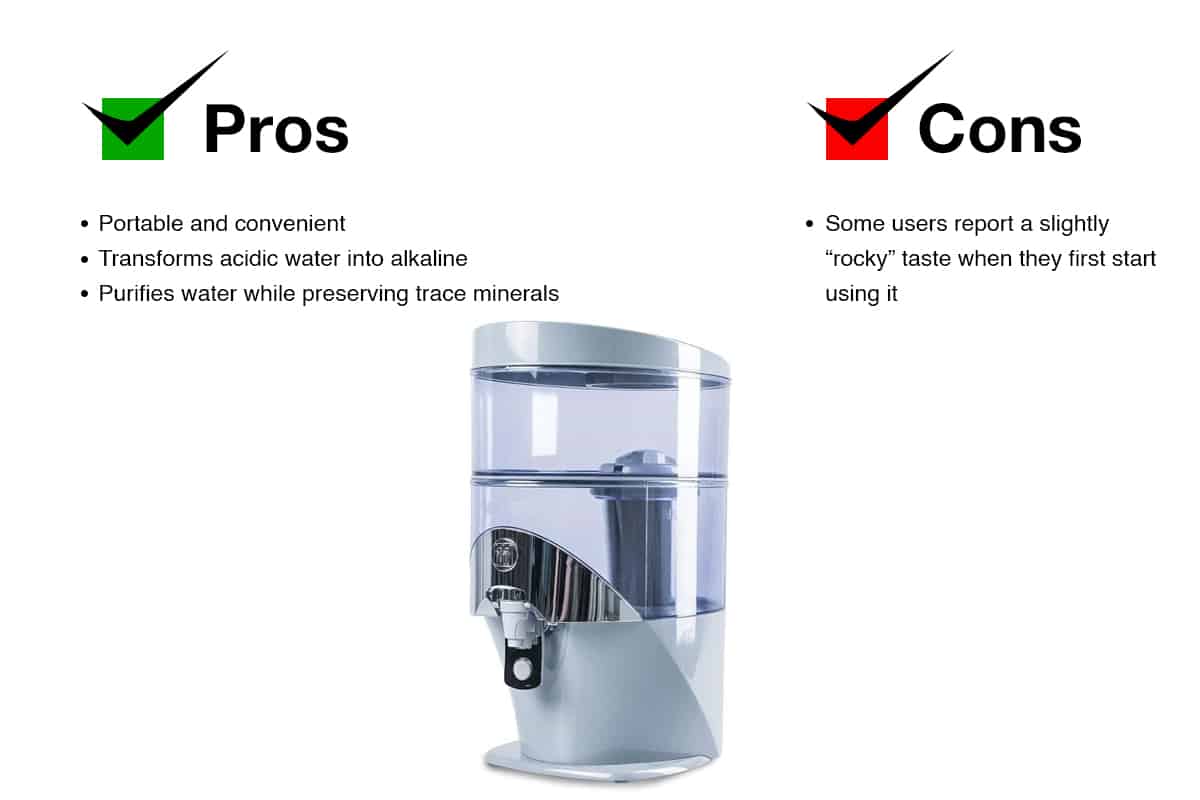
The Nikken water filter looks amazing. We like how futuristic it looks. As far as performance is concerned, this particular unit outshines many of the filtration systems we’ve encountered, and with good reason. It uses an advanced natural filtration system with multiple purification stages to reduce acidity and eliminate a wide range of pollutants from the water.
Pros
- Portable and convenient
- Transforms acidic water into alkaline
- Purifies water while preserving trace minerals
Cons
- Some users report a slightly “rocky” taste when they first start using it
Purewell Gravity Water Filter
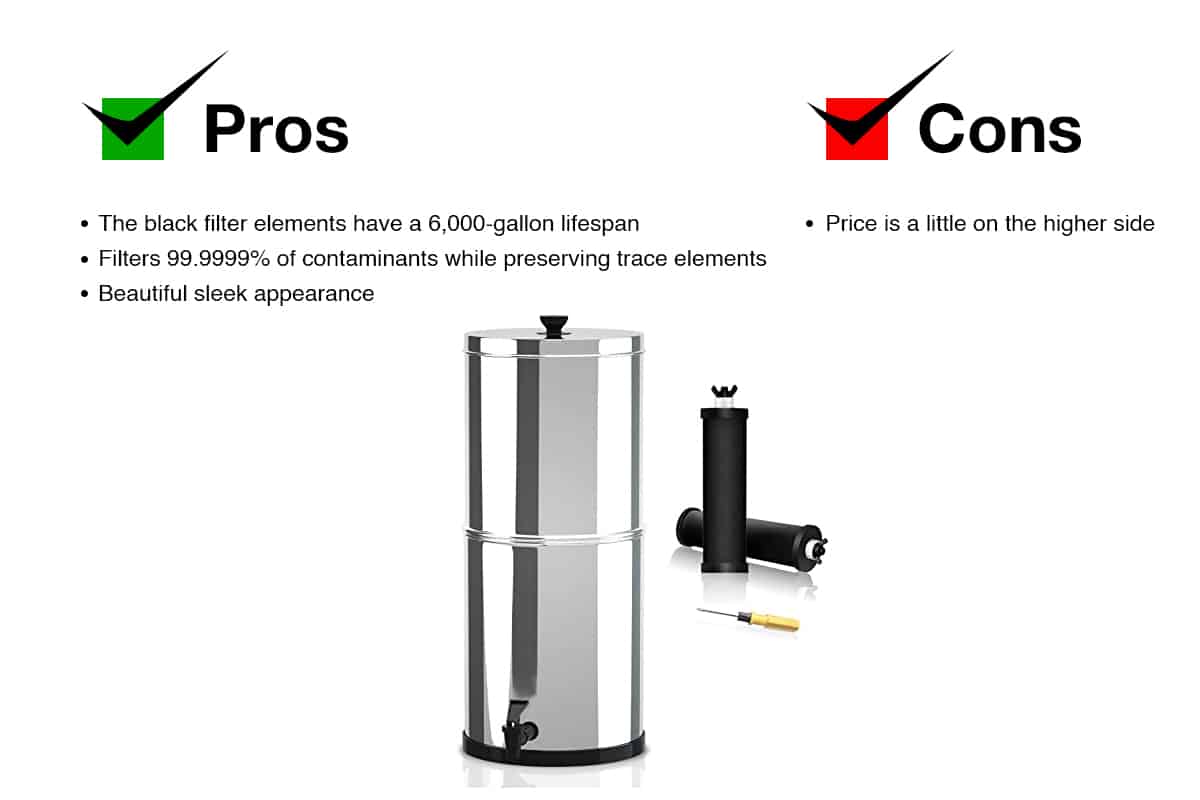
The Purewell gravity filtration system uses a medical-grade filter made from hollow fiber and UF membrane, alongside activated carbon derived from natural coconut shells. It effectively filters 99.9999% of sediments, particulates, cysts, and a wide range of disease-causing viral and bacterial pathogens.
The food-grade 304 stainless steel housing not only looks great but is also non-reactive, so you don’t have to worry about it rusting with extended use.
Pros
- The black filter elements have a 6,000-gallon lifespan
- Filters 99.9999% of contaminants while preserving trace elements
- Beautiful sleek appearance
Cons
- Price is a little on the higher side
What Is a Gravity Water Filter?
A gravity filter is a water purification system whose process relies on the force of gravity to push down the water through a filter, effectively removing any impurities, contaminants, pollutants, particles, and sediments.
Once this is done, the crystal-clear water then flows into a holding chamber. Some brands have a pitcher-style faucet, while others like the countertop ones have a spigot you can use to tune the water on or off. Some versions are made of flexible, fabric-like material that you can fold and pack inside your bag. These are ideal for outdoor use, like camping, fishing, or backpacking through the woods.
How Does It Work?
What makes the gravity water filter so popular is just how easy it is to use. It has two chambers and a filtration medium, which might vary depending on the specific product you use. Nonetheless, they all work the same way.
First, you’ll need to add water to the upper chamber. This is where the filter medium is. As the water passes through the element, the filter’s microscopic pores act as a barrier to trap larger sediments and particles. This prevents them from moving to the next chamber.
The ready-to-drink, clean, filtered water then passes to the lower chamber where it remains before it is accessed.
What Are the Different Types of Gravity Water Filters?
Gravity water filters come in various sizes, styles, and shapes. Here are the different types of water purification systems you might come across.
Ceramic Gravity Water Filters
These are one of the several home versions of water purification systems. As their name suggests, they are made of ceramic, making them a top choice among individuals that are allergic or sensitive to certain chemicals. On the downside, however, they require significantly more care and maintenance compared to standard filtration systems.
Stainless Steel Gravity Water Filters
These are the most common types of gravity water filters on the market. They tend to be quite large and bulky and can hold a considerable amount of water in their chambers. Since they usually have stainless steel housing, they are more durable than their ceramic counterparts. It means you don’t have to worry about them breaking, cracking, or chipping at the surface.
Gravity Bag Water Filters
These versions of gravity water purifiers are a lot more lightweight, compact, and portable compared to the two previous versions we’ve seen so far. As such, you’ll commonly find them among people who love fishing, camping, backpacking, and the great outdoors in general.
They typically use ceramic and activated carbon as the filter medium to clean the water in the first chamber before it flows into a second compartment in the lower chamber. You do need to handle them carefully, though; otherwise, the water in the first chamber will simply contaminate the one in the compartment below.
Advantages and Disadvantages of Using a Gravity Water Filter
As is the case with all filtration systems, gravity water filters also have their own unique set of pros and cons. If you’re thinking of getting one, you need to weigh these carefully to determine if a particular product is right for you.
Advantages
Purifies Water
This one is a no-brainer. Gravity water filters act as a barrier to remove pathogens, contaminants, particles, sediments, and any other kind of impurity that’s bigger than the size of the microscopic pores on the filtration cartridge. That way, you get crystal-clear water that’s fit for human consumption.
Eco-Friendly
You don’t have to rely on bottled water with a filtration system when you’re at home, out fishing, camping, or hiking in the woods. It reduces the amount of plastic pollution in the environment.
Produces Great-Tasting Water
Aside from filtering the bacterial pathogens and pollutants that may be present, gravity filters also remove chemical contaminants and mineral sediments that may interfere with the water’s taste and smell.
Disadvantages
Long Filtration Times
Just like you would expect with any filtration system, the process is not instant. It takes a while for the water to pass through the first chamber before you can get clean drinking water. Periodically having to refill it might also be a bit of a hassle for some.
Limited Water Output
Gravity systems are also limited in the amount of water they can filter. On average, most standard units can only sift between 10 and 16 cups a day since they have a relatively slow flow rate.
Filtration Medium Limitations
For the filter to remove a wide variety of impurities, contaminants, and pollutants, you may need to get one that has a combination of different filtration mediums to confront a broader range of impurities.
Buying Guide – How to Choose the Best Gravity Water Filter
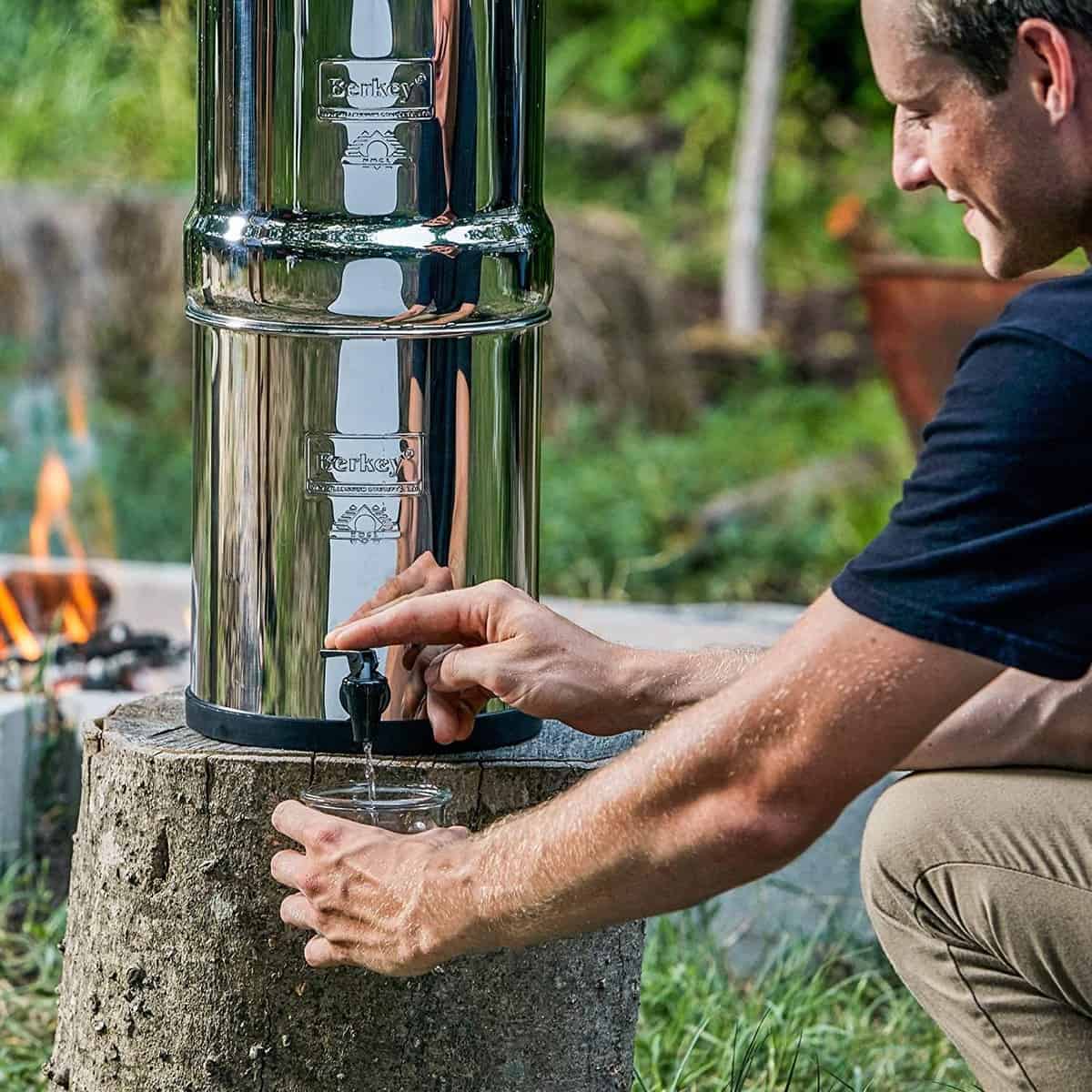
With so many different filtration systems on the market right now, choosing the best one can be a daunting task. We’ve put together a list of factors you need to consider before settling for a particular gravity water filter.
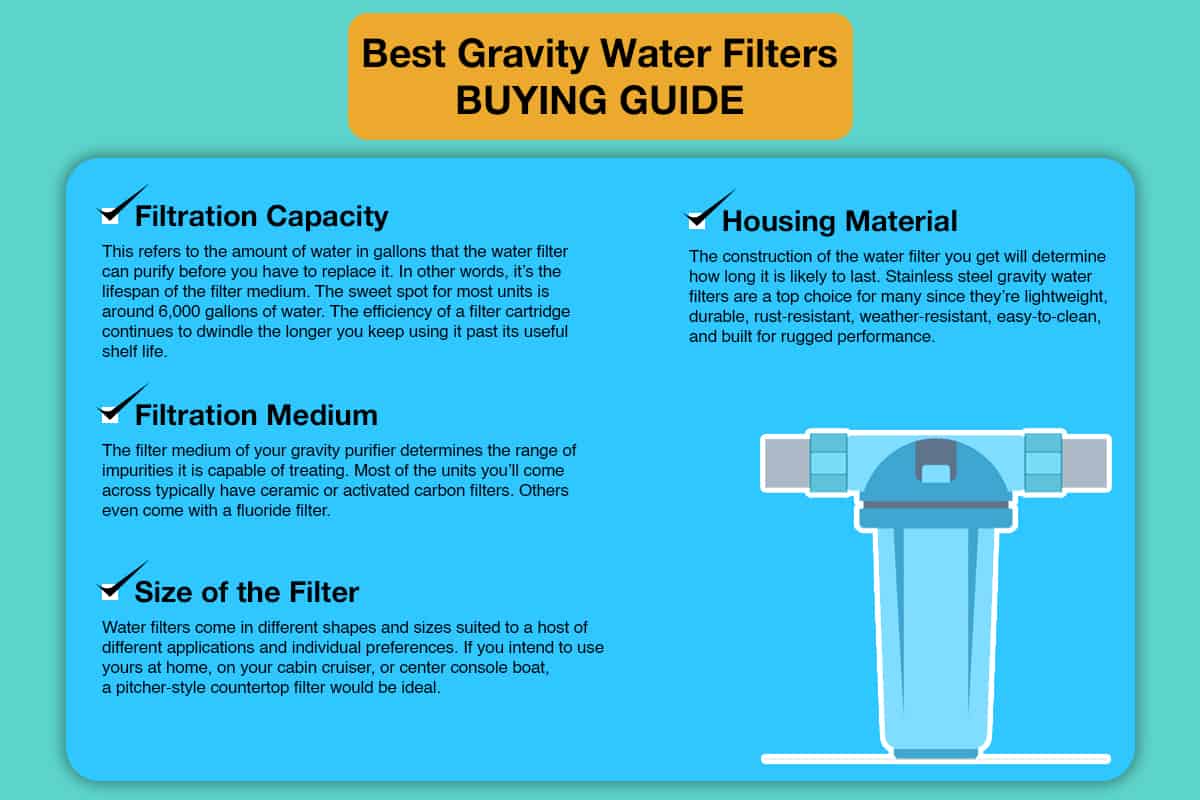
Filtration Capacity
This refers to the amount of water in gallons that the water filter can purify before you have to replace it. In other words, it’s the lifespan of the filter medium. The sweet spot for most units is around 6,000 gallons of water. The efficiency of a filter cartridge continues to dwindle the longer you keep using it past its useful shelf life.
Filtration Medium
The filter medium of your gravity purifier determines the range of impurities it is capable of treating. Most of the units you’ll come across typically have ceramic or activated carbon filters. Others even come with a fluoride filter. The point is – you want to pick a unit with a combination of two or more elements to increase the range of impurities it can effectively treat.
Size of the Filter
Water filters come in different shapes and sizes suited to a host of different applications and individual preferences. If you intend to use yours at home, on your cabin cruiser, or center console boat, a pitcher-style countertop filter would be ideal.
If, on the other hand, you intend to go camping, kayaking, or spearfishing, you want to get something a little more lightweight and compact, like a bag filter. The size you buy all depends on the number of people who’ll be using it at any given time.
Housing Material
The construction of the water filter you get will determine how long it is likely to last. Stainless steel gravity water filters are a top choice for many since they’re lightweight, durable, rust-resistant, weather-resistant, easy-to-clean, and built for rugged performance.
Keep in mind that they tend to have a higher price point than other types of filtration systems. However, in the long run, they’ll save you a ton of money on replacement parts and other associated costs.
Frequently Asked Questions (FAQs)
What is the best gravity-fed water filter?
Berkey has some of the best gravity water filters we’ve come across. The performance of the Travel Berkey, in particular, is pretty impressive. Other top brands that we recommend include Ginkin, Joypur, Purewell, and LifeStraw.
How much does a gravity water filter cost?
It all depends on the type you get. Stainless steel systems tend to cost more than bag filtration systems. Nonetheless, they are more durable than other types of filters, so their initial cost pays off in the long run. The price of gravity water filters ranges anywhere between $50 and $470.
Which water filter removes the most contaminants?
When choosing a filtration system, the rule of thumb is to pick a unit with a combination of two or more filter elements. The higher the number of filters it has, the wider the range of contaminants it can treat.
The Joypur water filter, for instance, has three purification filters. These remove bacteria and other disease-causing pathogens, heavy metals like lead, chromium, and mercury, as well as pesticides, herbicides, and other organic chemical matter.
Conclusion
While choosing the best gravity water filter can be challenging, knowing what to look for in one will save you from the headache and heartache that comes with picking the wrong one. Any of the units we’ve reviewed in this guide would be an excellent choice.
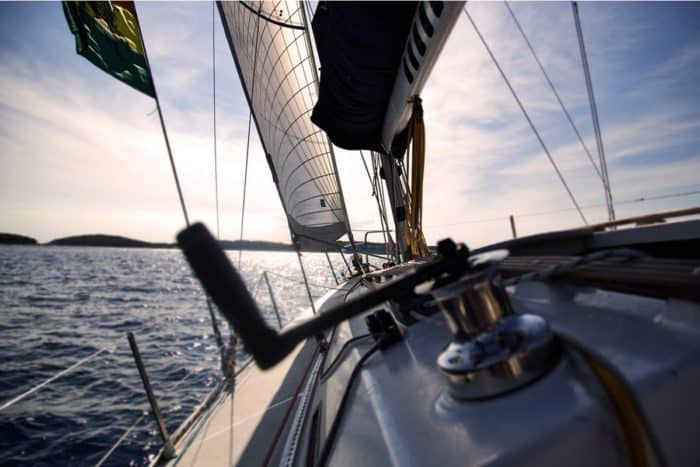
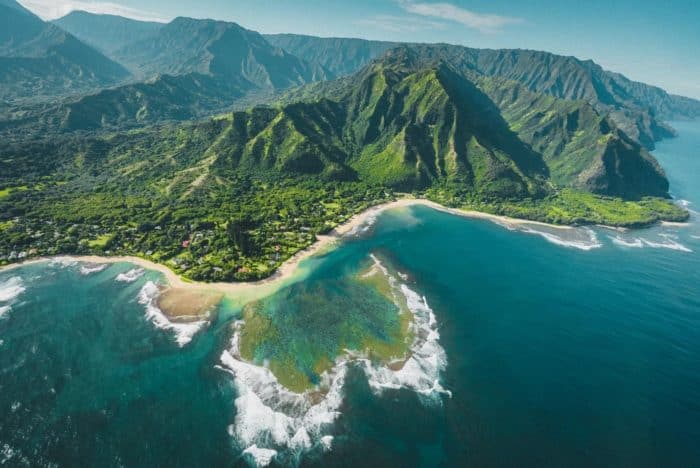
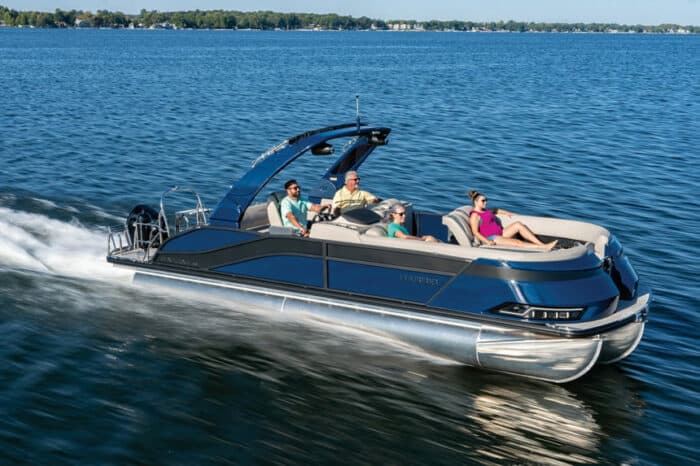
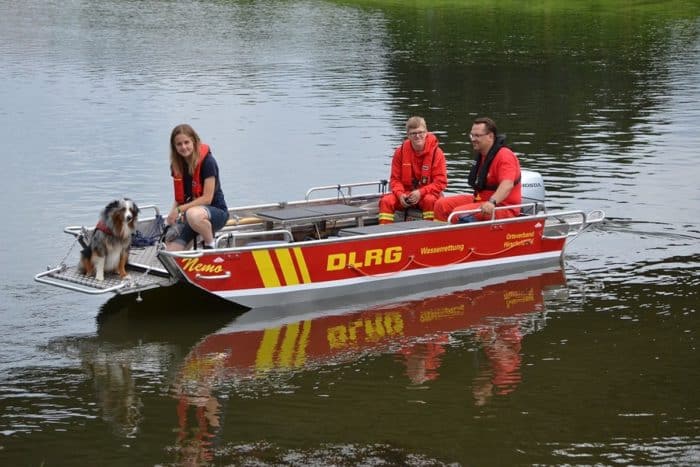




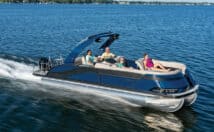



2 Comments
Glen Taylor on July 19, 2021
I often bring the LifeStraw Flex Gravity Water Filter with me when I go fishing or camping because I trust Lifestraw’s filter equipment. Very easy to use and the water is also very tasty, no more disgusting smell and delicious like bottled water.
Glen Taylor on July 31, 2021
I would recommend it to any because i trust it. Will buy another one for my wife for her